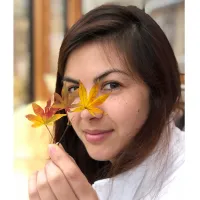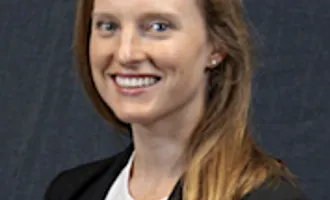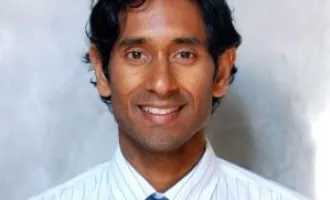UCSF Students Create COVID-19 Fact Check Website
In an era of fake news, it’s important to find the facts. This can become more complicated when there are misunderstandings about terminology (“airborne” vs “droplet-borne”) or when research is still ongoing.
A team of two dozen UCSF medical students and a designer created a website, COVID-19 Fact Check, which busts myths about COVID-19 with clear and illustrated examples.
Some questions answered are “Will wearing gloves protect me?” and “Does eating garlic prevent COVID-19?”
The site focuses on giving medically-sound advice in a concise and uncluttered format. Unlike other projects, the website is available in six languages in addition to English, including Arabic, Chinese, Korean, Punjabi, Spanish, and Vietnamese.
We corresponded with three of the medical students about their experiences setting up the project.
Synapse: How did the project get started?
Hallen Pham (4th year medical student): As medical students, we are extremely concerned about how misinformation about COVID-19 can be harmful and fear-inducing. Many of our team members have already been volunteering to create educational material for the public in multiple languages.
I knew we had the ability to synthesize the information but we want to deliver our information in a way that is simple, visually appealing, and easy-to-share with others.
Luckily, my partner Shawn Park is a web engineer who was eager to help. Our vision was able to come true because of the hardworking and passionate members on the team. We now have a diverse team of health and pre-health profession students and postdocs from multiple institutions.
Synapse: Where do you think misinformation about COVID-19 comes from, and how do you feel about its use in this pandemic?
Fiona Ng (4th year medical student): We were introduced to many of these misinformation through our parents' social media platforms (Facebook, Twitter, WhatsApp, or WeChat). Many of these myths are widely shared among the communities through chat groups that our parents are a part of.
While a lot of the information being shared on social media is very informative, there is also a lot of misinformation. Given that there were and still continues to be a lot that we don't know about COVID-19, it can be difficult for folks in the community to differentiate between facts and myths.
I think that when faced with the unknown, it is normal for us to gravitate towards anything that gives us hope.
While credible resources, such as scientific journals, are great reliable sources for learning about COVID-19, it is often difficult for communities to access their information due to scientific lingo and language barriers. Furthermore, when myths are written in one's preferred language or incorporates cultural practices that are familiar to us, it makes sense why folks may find comfort in the myths.
Therefore, we decided it was important to try and bridge that gap between scientific language and our communities. Still, we know one size does not fit all.
Synapse: What was the motivation for translating into different languages?
Anuvir Singh (4th year medical student): Most of the team members grew up in households where English was not the primary language. Our main motivation to translate into different languages has roots in our own stories.
For many of our communities, critical COVID-19 information in their native languages is either unavailable, distorted or released too late. This creates fear and becomes potentially harmful.
We wanted to address the concerns of our communities by dispensing credible information in their native language, which is easily digestible and shareable.
For certain communities, including the Punjabi speaking community, COVID-19 Fact Check might be the only credible source of information that is clear and consistent. Through our multilingual website, we hope to reach a larger audience and create a common understanding regarding myths and facts about coronavirus so that we can better fight against this pandemic.
For more, go to https://www.covid19factcheck.com/.
Responses have been edited lightly for clarity.
Victoria Sayo Turner is a 4th year graduate student studying the neuroscience of stress.



